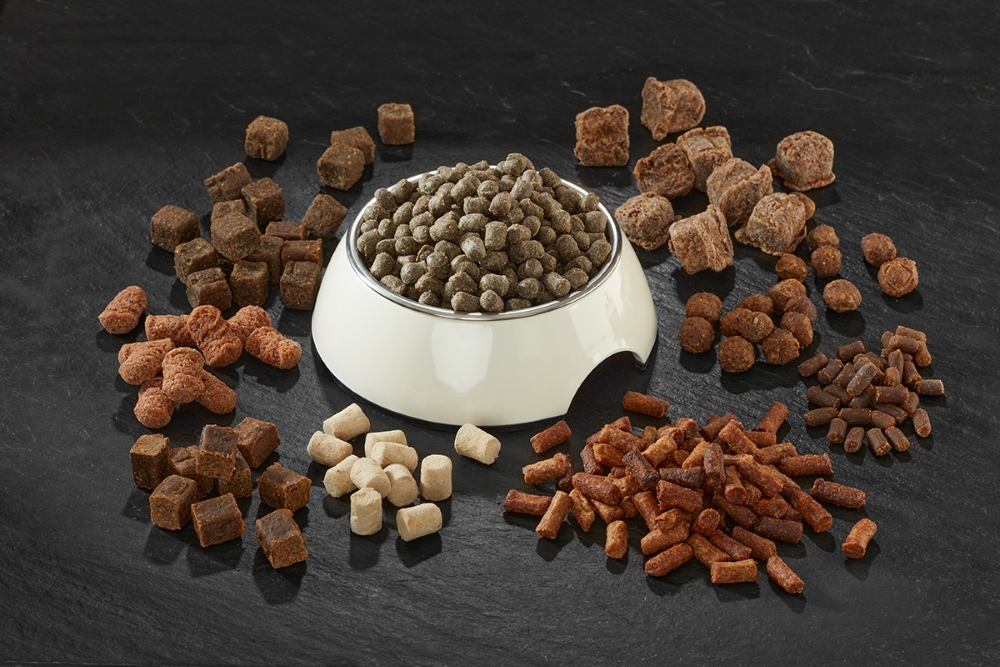Pulse of Information
Stay updated with the latest news and insights.
Is Your Pet's Food a Feast or a Famine?
Discover if your pet's food is a gourmet delight or a nutritional disaster. Uncover the truth behind their meals and keep them thriving!
Understanding the Basics: Is Your Pet's Food Nutritionally Balanced?
When it comes to your pet's health, understanding the basics of nutritionally balanced pet food is essential. A diet that lacks the necessary vitamins, minerals, and nutrients can lead to various health issues. To determine if your pet's food is meeting their needs, consider the following factors:
- Ingredient Quality: Evaluate the quality of the ingredients. Look for whole proteins, healthy fats, and natural sources of vitamins.
- Life Stage Appropriateness: Ensure the food is suitable for your pet’s age—puppies and kittens have different nutritional requirements than adult pets.
- AAFCO Statement: Check if the food meets the standards set by the Association of American Feed Control Officials (AAFCO), which ensures it provides complete and balanced nutrition.
Next, it's crucial to be aware of the symptoms that indicate a nutritionally unbalanced diet. Common signs include lethargy, poor coat condition, gastrointestinal upset, or noticeable weight changes. If you observe any of these symptoms, it may be time for a dietary review. Consulting with your veterinarian can help you assess your pet’s specific needs and select a nutritionally balanced pet food that promotes optimal health.

Top Ingredients to Look for: Is Your Pet's Food a Feast or Famine?
When selecting pet food, it's vital to recognize the top ingredients that can transform your pet's meals from a mere famine to a delicious feast. Look for high-quality animal proteins, such as chicken, beef, or fish, listed as the first ingredient. These proteins provide essential amino acids that contribute to muscle development and overall health. Additionally, healthy fats, like omega-3 and omega-6 fatty acids, should be present, as they promote a shiny coat and improve skin health. Foods that include whole grains, fruits, and vegetables will also offer necessary vitamins and minerals, enhancing digestion and boosting the immune system.
Another crucial aspect to examine is whether the food contains artificial additives or fillers. Ingredients like corn, soy, or by-products often indicate lower-quality options that could lead to a famine in nutrition. Instead, prioritize foods that are free from artificial colors, flavors, and preservatives. Feed your pet with a diet that mirrors their natural dietary needs and supports their overall wellness. Reading the label and understanding these key factors will ensure that your furry friend enjoys a nourishing feast, rather than missing out on vital nutrients.
How to Read Pet Food Labels: What Your Pet Is Really Eating
Understanding how to read pet food labels is essential for ensuring your furry friend receives the proper nutrition. Start by examining the ingredient list, which is typically ordered by weight. The first few ingredients should consist of high-quality proteins, whole grains, and healthy fats. Avoid brands that list vague terms like 'meat meal' or 'animal by-products' as the primary ingredients. Additionally, check for specific sources of protein, such as 'chicken' or 'salmon', rather than generic terms, which may indicate lower quality. This simple step can help you make informed choices about what your pet is really eating.
Next, look at the guaranteed analysis section, where you'll find information on the food's nutrient content, including protein, fat, fiber, and moisture levels. Pay attention to the caloric content as well, especially if your pet is prone to weight gain. Remember, just because a product is marketed as 'natural' or 'holistic' doesn't necessarily mean it's the best choice for your pet. Supplement ingredients like vitamins and minerals are essential for overall health, so check that they are included in adequate amounts. By becoming adept at reading pet food labels, you empower yourself to select the right products that contribute positively to your pet's health and longevity.